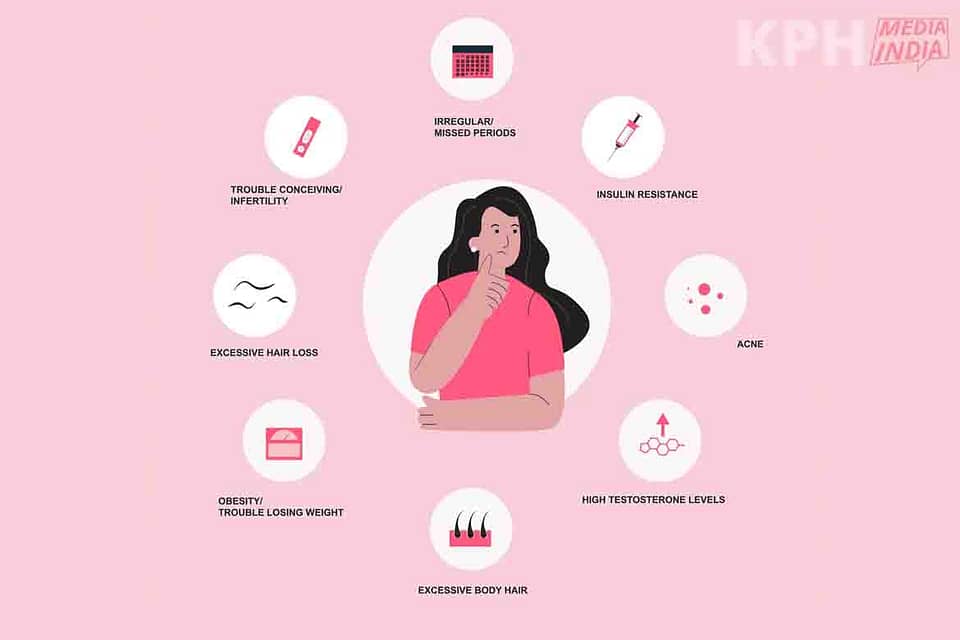An imbalance of hormones may cause a variety of unwanted symptoms, such as fatigue or weight gain, itchiness, or depression. An endocrine gland produces hormones and releases them into the bloodstream. If a hormone is overly or underly present, there is an imbalance.
A hormone is a chemical that regulates many functions in your body, including appetite and metabolism, sleep patterns, reproductive cycles, and sexual function, as well as body temperature and mood. It is not surprising, then, that even the slightest imbalance can affect your health and wellbeing.
A woman’s hormone levels naturally fluctuate at various life stages, especially during puberty and during menstruation, pregnancy, and menopause. Lifestyle and certain medical conditions can also affect hormone levels.
Observe any symptoms and get them checked by a health professional so that you receive the appropriate treatment, whether it is through medication, complementary therapies, or lifestyle changes, to restore the balance and your health.
Here are the 8 Symptoms of Hormonal Imbalance in Females:
1.) Mood swings:
Women’s sex hormone estrogen affects neurotransmitters in the brain, including serotonin (an antidepressant). Menopause and perimenopause can lead to PMS and depression due to fluctuations in estrogen levels.
Exercise, drinking less alcohol and quitting smoking can improve your mood, and if you’re perimenopausal or menopausal, you can take hormone replacement therapy (HRT). Keep a diary of your symptoms to help you and your doctor determine if hormonal changes are the cause.
2.) Heavy or painful periods:
If the pain is accompanied by other symptoms like abdominal pain, frequent urination, lower back pain, constipation, or painful intercourse, it could indicate fibroids. Ovarian fibroids are non-cancerous growth that develops around the womb.
Although the exact cause is unknown, they are thought to be stimulated by estrogen, and having a family history makes you more likely to be affected. Heavy Periods one of the major Symptoms of Hormonal Imbalance in Females
Consult a physician if you experience symptoms so that you may be prescribed medication to shrink the fibroids. In severe cases or if the problem cannot be resolved by medication, surgery may be considered.
3.) Low libido:
Due to a decline in estrogen and testosterone (even though testosterone is a male hormone, women have testosterone as well), women who are going through perimenopause or menopause are more likely to have low libido. Various menopausal symptoms can also affect your sex life, such as night sweats, fatigue, low mood, and anxiety.
As part of your hormone replacement therapy, you may want to consult a women’s health expert if you are going through menopause. It can also boost your mood and energy levels as well as improve your libido.
4.) Poor-quality sleep and insomnia:
It is the symptoms of menopause and perimenopause. The ovaries produce less estrogen and progesterone during these times, which promotes sleep. Low estrogen levels may also cause night sweats, which disrupt your sleep and cause fatigue.
If you are experiencing perimenopause or menopause, discuss with your doctor the benefits of HRT, which will restore levels of estrogen and progesterone. Furthermore, you can do practical things to improve your sleep, including wearing cotton nightwear, sleeping on cotton sheets, keeping your bedroom cool and as dark as possible, exercising, and cutting back on alcohol and caffeine consumption.
5.) Unexplained weight gain:
The hormone underactive thyroid (when the thyroid gland does not produce enough thyroid hormones to regulate metabolism), polycystic ovary syndrome (PCOS), and menopause can cause weight gain due to hormonal changes in the body that result in the excess accumulation of fat around the abdomen. one of the most common Symptoms of Hormonal Imbalance in Females
Consult a women’s health expert if you experience unexplained weight gain, despite changes in diet and exercise levels. Thyroid disorders and ovarian cysts may be to blame. It may be beneficial to discuss HRT with your physician if you are going through menopause. While some women believe HRT causes weight gain, the evidence does not support this claim.
6.) Skin problems:
An adult with chronic acne may be deficient in estrogen, progesterone, and androgens, as well as suffering from polycystic ovary syndrome. In the same way, hormonal imbalances during pregnancy or menopause may cause itchy skin, and dry skin can be a sign of thyroid problems or menopause.
You should consult a women’s health expert if you suspect persistent skin problems are due to hormonal imbalance.
7.) Fertility problems:
Hormonal imbalance is one of the main causes of female infertility and with varying hormone levels, a woman’s fertility naturally decreases after the age of 35. High levels of the follicular-stimulant hormone (FSH) can reduce the chances of a woman becoming pregnant while low levels of luteinizing hormone (LH), which stimulate the ovaries to release an egg and begin producing progesterone, may also cause fertility issues. Premature menopause and other hormonal disorders like PCOS will affect your fertility.
8.) Vaginal dryness:
Vaginal dryness is most commonly caused by a decrease in estrogen levels, particularly during perimenopause and menopause. Taking birth control pills or anti-depressants can also change hormone levels, which leads to the problem.
Practical steps may involve washing with non-perforated soaps and using water-based lubricants. When symptoms of menopause are causing your symptoms, HRT can help by increasing estrogen levels.

